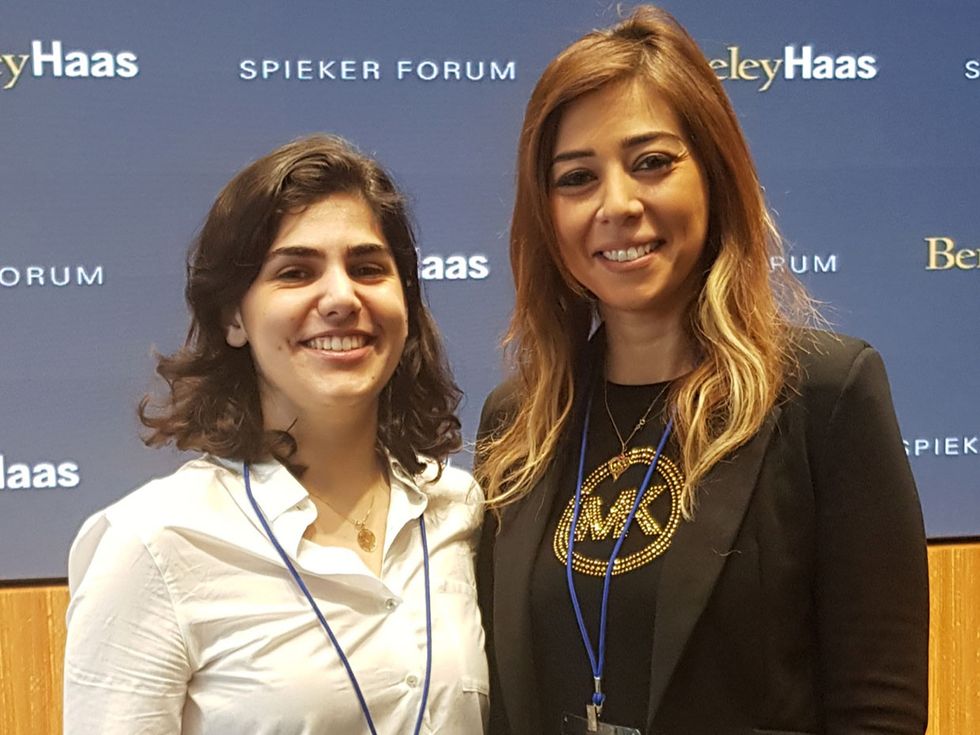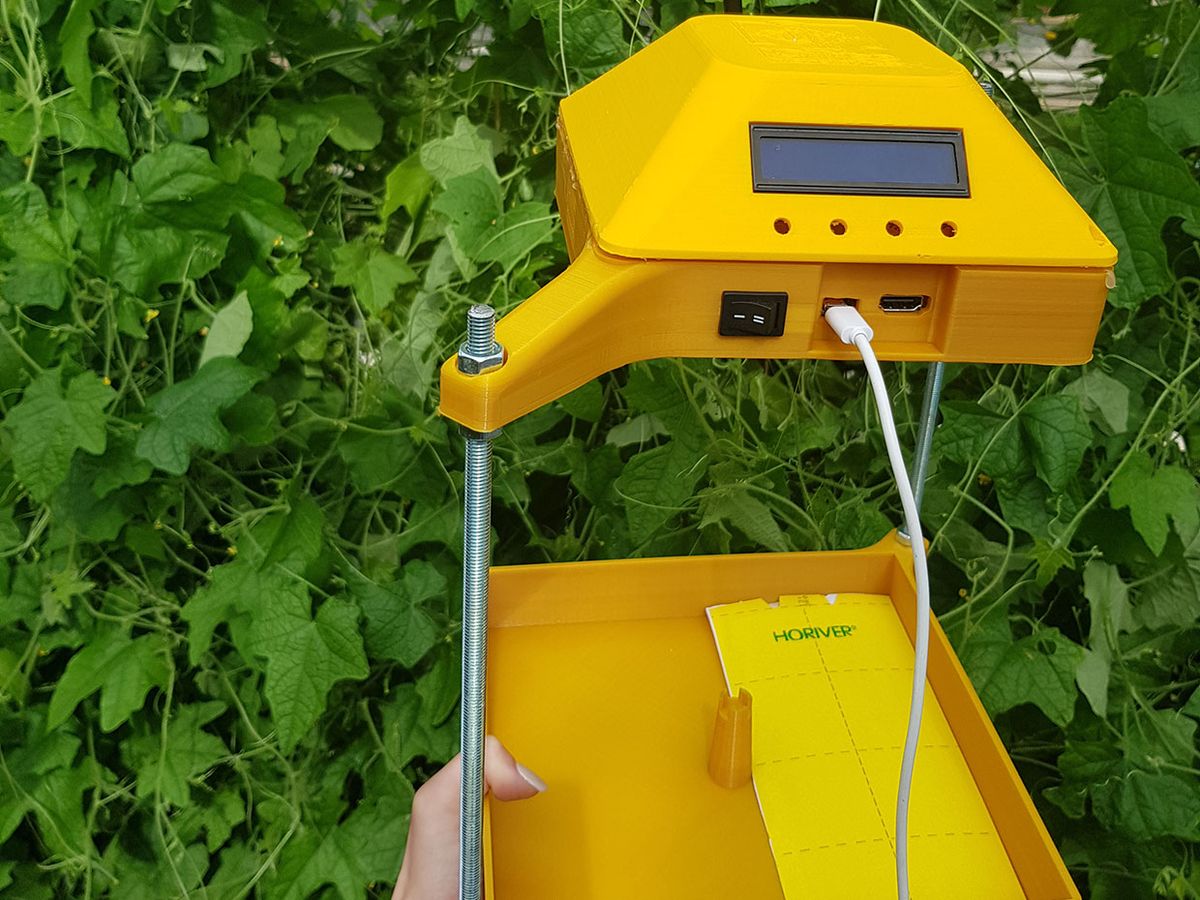The Mediterranean fruit fly is a destructive pest. It can wipe out an entire year's worth of crops. Infestations cause farmers to lose trillions of dollars in sales every year, according to the U.N. Environmental Program.
Crops grown in countries in Europe, the Middle East, and North America have been severely damaged by the pests. The flies lay their eggs in fruit and vegetable plants, and when the larvae hatch, they feed on the produce.
The only way to kill the flies is to use pesticides, but spraying too much of the chemicals can damage crops and kill off insects that are the pests' natural enemies. Plus, the chemicals reduce the produce's nutritional value.
Knowing how much pesticide to use, when, and where is tricky.
The startup Internet of Trees (IOTree) is trying to solve the problem with a system that alerts farmers when an infestation has occurred and sends them information via a mobile app about the right amount of pesticide to use. Farmers in Lebanon and the Netherlands are testing the app.
The company was founded last year by IEEE Graduate Student Member Christina Chaccour, an electrical engineering Ph.D. student at Virginia Tech, and Nisrine El Turky, an engineering professor at Notre Dame University–Louaize, in Zouk Mosbeh, Lebanon.
“To treat the infestations, farmers were spraying an excess amount of pesticides on their crops," Chaccour says. “Instead of saving their crops, they were making the situation worse by using more chemicals than the law allows."

RESEARCH FIRST
El Turky was Chaccour's professor when she was pursuing her bachelor's degree in electrical engineering at Notre Dame–Louaize. After hearing about the struggles that farmers in the Lebanon Mountains were facing during a trip there, El Turky attended workshops and seminars and met with farmers to understand the issue.
After discovering that the growers were spraying too much pesticide, she wanted to use technology to solve what she saw as an agricultural crisis.
El Turky came up with the concept for IOTree and showed it to Chaccour. The two built smart insect traps that use a deep-learning algorithm, machine vision, cameras, and sensors. There are currently two prototypes of the IOTree smart traps—one for greenhouses and another for fields and orchards.
Traps are placed so each one covers about 4,050 square meters (1 acre) to catch the insects. Once caught inside, the pests are photographed—their images transmitted to a server—and counted.
“The photos are sent to the program's server on the cloud—which classifies the pest with the help of our repository of images," Chaccour says. “The smart trap is capable of knowing which pest is targeting the farmer's plot and how often."
The information gathered from the images determines whether a fruit fly or another insect is damaging the crop. Then the system calculates how much pesticide the farmer should use based on the type of insect and the count. The sensors in the smart trap also measure the soil's humidity and temperature.
The two women also built a mobile app. The information from the smart traps is sent to the farmers via the app, which can be used on a mobile device or computer.
“Once the farmer has installed the smart IOTree devices, the app will remotely provide him with all the agricultural practices he needs to complete, such as when to spray pesticides, where to spray them, and how much to spray," Chaccour says. “The farmer can watch over his plot from the comfort of his own home.
“Our aim is to provide the farmer with an affordable solution that is less expensive than the price of applying pesticides. This technology also helps motivate farmers not to rely on pesticides, which drastically reduce the quality of the produce and negatively impact the ecosystem."
IOTree is in the process of filing a patent application as well as registering for a trademark.
SAVING CROPS
The company offers two levels of subscription service: premium and “freemium." Farmers with a freemium subscription get notified of an infestation. The premium version provides the farmer information about what was detected—which could include not just fruit flies but also eggs and fungi. The price of the premium service is still being worked out. Both subscriptions require farmers to purchase smart traps. The overall price will vary depending on the plot size and how many traps are needed.
The startup is getting assistance from business incubators Agrytech, Flat6Labs, and Touch Lebanon as well as the Lithuania-based Women in Tech by Baltic Sandbox. Women in Tech provides women in STEM fields with career guidance and startup funding. Touch Lebanon is the country's leading mobile telecommunications and data operator.
IOTree won this year's regional Global Social Venture Competition in the Middle East. The startup was also named the best Lebanese solution by the Next Society, comprised of investors from countries such as France, Spain, and the United Arab Emirates.
“We want to raise awareness about the struggles farmers are facing all over the globe," Chaccour says.
NEW FEATURE
Based on the feedback the company has received, it's enhancing its algorithms to make IOTree more accurate.
El Turky and Chaccour are working on adding Narrowband Internet of Things capability to their app. NB-IoT is a low-power network standard that is expected to enable a wider variety of cellular devices and services to be connected to the IoT. NB-IoT functions with low bandwidth and therefore can improve the smart traps' battery life and power consumption. The startup can use the technology to send small packets of data to and from the server, and the NB-IoT will provide the traps with constant access to power. Thus, farmers should be able to use the trap system even when inclement weather causes power outages.
Chaccour says the company has partnered with Touch Lebanon to develop the traps' NB-IoT capabilities. The feature is expected to be introduced next year.
This article appears in the March 2020 print issue as “Christina Chaccour Deploys Smart Traps to Protect Farmers' Crops From Fruit Flies."
Joanna Goodrich is the associate editor of The Institute, covering the work and accomplishments of IEEE members and IEEE and technology-related events. She has a master's degree in health communications from Rutgers University, in New Brunswick, N.J.



